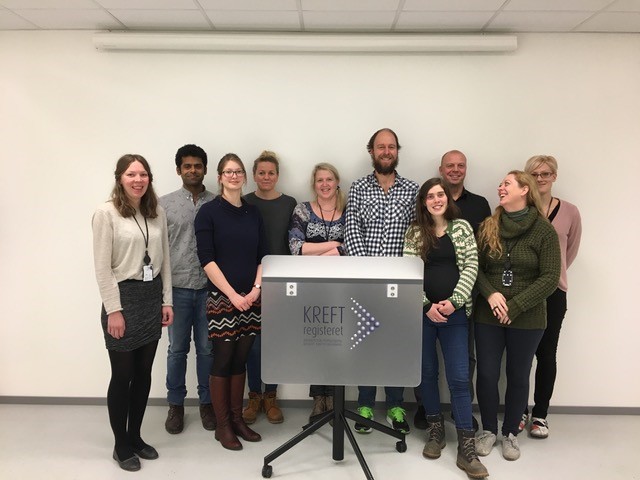
The diseases caused by the HPV virus are a great burden on society and can affect both men and women. Infection by the virus can lead to several types of cancer. The best known of these is cervical cancer. In the 2000s, the pharmaceutical company MSD developed the first vaccine against the HPV virus to prevent this type of cancer.
However, when the vaccine was approved, the US Food and Drug Administration (FDA) demanded that data on the effect of the vaccine and the side effect profile be collected for 15 years, since it takes 10–15 for HPV infection to cause cell changes and cervical cancer.
MSD contacted the Cancer Registry, which in cooperation with other Nordic research communities and MSD has worked on monitoring the effect of the vaccine in Norway, Denmark, Sweden and Iceland.
Uses real world data
Mari Nygård is a senior consultant and leader of the Cancer Registry’s HPV-related epidemiological research unit.
She has managed the project from the beginning, and is proud of their contributions thus far.
-‘We monitor the effect of the vaccine by using real world data. Among other things, we are using health registries to follow up 10,000 participants for 15 years. Less than five per cent have dropped out so far. That is sensational. The study is really unique in a global context,’ says Nygård.
In the study, the Cancer Registry and its partners work to map side effects and endpoints. In this context, endpoints can be vaccine-induced immune response, precursors to cervical cancer or other types of cancer caused by the HPV types included in the vaccine.
The researchers gather information about the endpoints from the health registries and by obtaining biological material from clinical biobanks for virological and pathomorphological analyses. In addition, blood samples are collected from the participants at regular intervals to test for vaccine-induced HPV antibodies.
In addition to several publications and a competence boost in HPV for the Cancer Registry, the research has received great international recognition.
Important to collaborate on register data
Nygård hopes that the HPV project can inspire others to conduct similar studies that require health data.
-‘There is currently a great interest in health registry research, and we know that the information stored there is a potential goldmine. Our collaboration with MSD shows that it is possible to find “health gold” that is important to public health, and that the industry can play an important role in this context,’ says Nygård.
The pharmaceutical company MSD agrees with this, and is very pleased with its collaboration with the Cancer Registry.
-‘The Cancer Registry has played an important global role in the development of MSD’s HPV vaccines. We are proud to have contributed to promoting the national registries in this collaboration, and believe this can be an example of how Norwegian data can be used in future drug development and drug follow-up,’ says Elen Høeg. She is responsible for vaccines in MSD.
Inven2’s important contribution
Inven2 has been an important contributor in this project. The company has been responsible for the agreements between the Cancer Registry and MSD since 2009.
-‘Agreeing on the first contract with MSD was a complex process, but we got there with Inven2’s help,’ says Nygård.
Read more
- https://www.kreftregisteret.no/Forskning/Prosjekter/Epidemiologisk-forskning-HPV/
- https://www.kreftregisteret.no/Forskning/Prosjekter/Epidemiologisk-forskning-HPV/ltfu/



 Norsk
Norsk